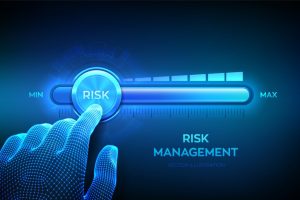Trading can be a highly profitable career for those who can master the art of buying and selling assets. However, it requires more than just financial knowledge and analytical skills. To be a successful trader, one must possess a variety of qualities that are crucial for navigating the fast-paced and often unpredictable world of trading.
Discipline: One of the most important qualities of a successful trader is discipline. A trader must have the ability to stick to their trading plan and not deviate from it, even when faced with losses or unexpected market events. This requires having a strong sense of self-control and the ability to resist impulsive decisions that could lead to disastrous outcomes.
Patience: Trading requires patience, as it can take time for investments to generate returns. A successful trader must be willing to wait for the right opportunities to arise and not rush into trades simply for the sake of making a quick profit. This means being able to tolerate periods of inactivity and not becoming overly anxious when things aren’t going as planned.
Emotional Intelligence: Trading can be a highly emotional experience, with the potential for significant gains or losses. A good trader must be able to manage their emotions and avoid making irrational decisions based on fear or greed. This requires having a high level of emotional intelligence, including self-awareness, self-regulation, empathy, and social skills.
Analytical Skills: While emotional intelligence is important, trading also requires analytical skills to make informed decisions. A good trader must be able to analyze market trends, identify patterns, and interpret data to make predictions about future market movements. This involves a combination of technical and fundamental analysis, as well as an understanding of economic and geopolitical factors that can impact the markets.
Risk Management: Trading is inherently risky, and a good trader must be able to manage and mitigate risk effectively. This includes setting stop-loss orders, diversifying investments, and avoiding overexposure to any one asset or market. It also means being able to accept losses and learn from mistakes rather than becoming overly attached to investments or taking unnecessary risks to recoup losses.
Continuous Learning: The markets are constantly evolving, and a good trader must be able to keep up with new developments and trends. This requires a commitment to continuous learning and a willingness to adapt to changing market conditions. It also means seeking out feedback and advice from other traders and industry experts to improve one’s skills and knowledge.
Trading can be a challenging and rewarding career for those who possess the right qualities and skills. To be a successful trader, one must be disciplined, patient, emotionally intelligent, analytical, skilled at risk management, and committed to continuous learning. By cultivating these qualities, traders can increase their chances of success and navigate the markets with confidence.
IMPORTANT: This content is accurate and true to the best of the author’s knowledge and is not meant to substitute for formal and individualized advice from a qualified professional.
Author: Raj Sukkersudha






Add Comment